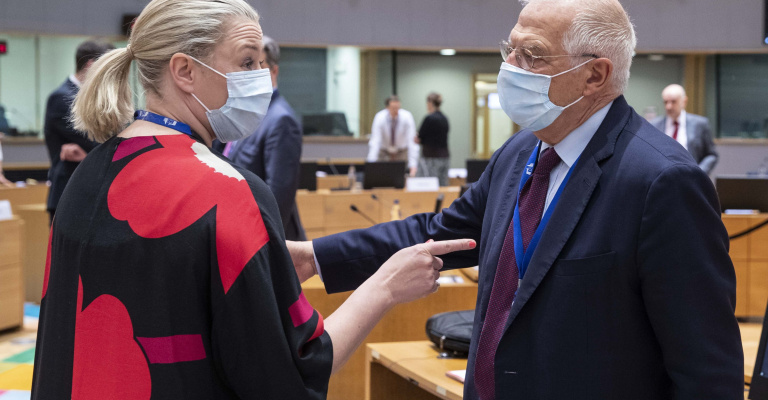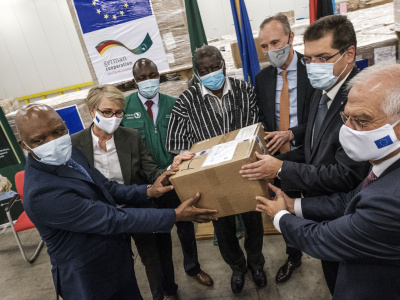
Towards an EU global COVID-19 response 2.0: Boosting smarter finance
The EU’s ‘Team Europe’ approach offers an opportunity to respond to the challenges posed by COVID-19 by stimulating greater cooperation among EU institutions, member states and their development finance institutions. This response ‘2.0’ should build on the previous one and put greater emphasis on areas such as food security.
Summary
The European Union (EU) has responded promptly to the unprecedented crisis caused by the COVID-19 pandemic – within, but also beyond its borders. The EU global response to COVID-19 includes quickly reallocating EU support to developing countries to address immediate COVID-19 challenges, amounting to some €20.8 billion. The ‘Team Europe’ approach adopted provides ample opportunities for cooperation and synergies among EU institutions, member states and their development finance institutions, as well as with international actors. These are vital first steps.
Given the global economic contraction resulting from COVID-19, very sharp in Europe as well, the capacity to mobilise public resources is too limited to support the huge emergency and recovery needs of the most vulnerable countries and people. A strategic countercyclical response is required.
The EU and its member states should thus seek to move towards a collective and well-coordinated global response 2.0, building on the initial one, and following in the footsteps of the proposed €2.4 trillion recovery plan for Europe. This collective EU global response should aim to mobilise additional resources more effectively, better leveraging private finance, and to stimulate greater cooperation and synergies among EU and with international actors, notably development finance institutions, supporting developing countries’ own initiatives. It should include initiatives to stimulate risk capital, promote investment coordination platforms, enhance economic governance, and support debt restructuring and reduction.
The ‘Team Europe’ approach should be a rallying point for the active engagement of EU member states and financial institutions, to respond to the COVID-19 crisis and achieve the Sustainable Development Goals. While keeping its priorities, notably towards a value-based approach, resilient health systems, a greening of the recovery and digitalisation, the EU should put greater emphasis on food security and sustainable food systems. Moreover, women should have a central place in the EU’s global response 2.0.




